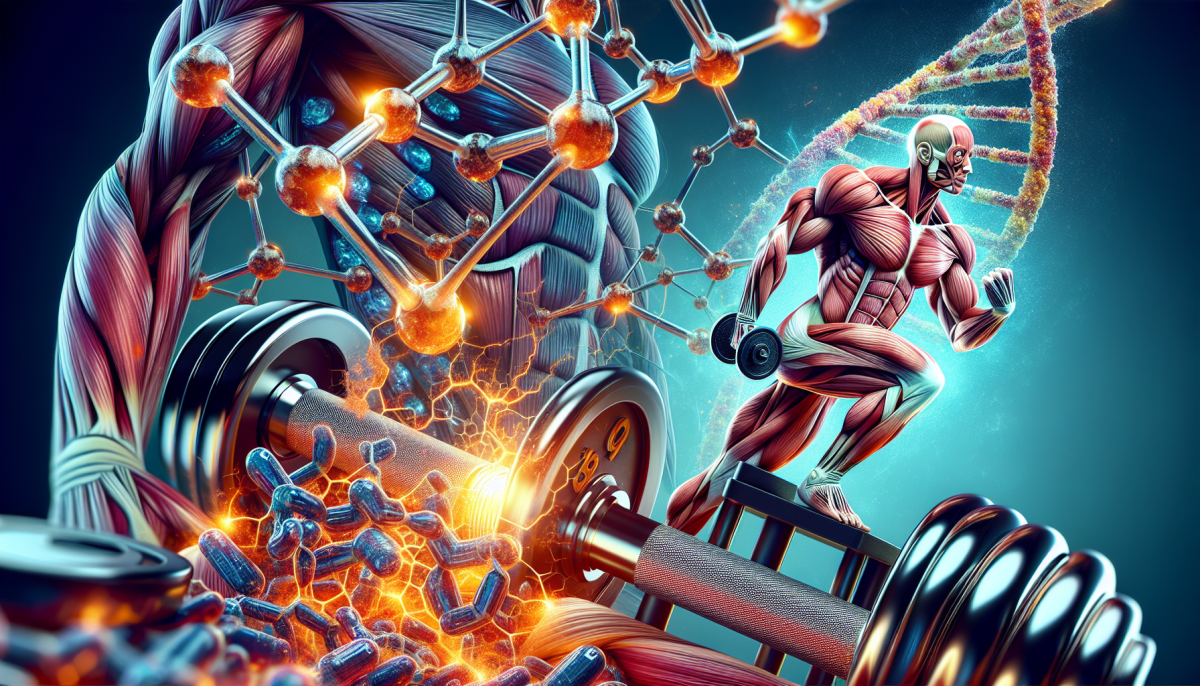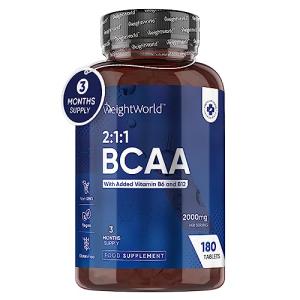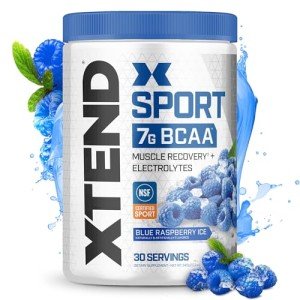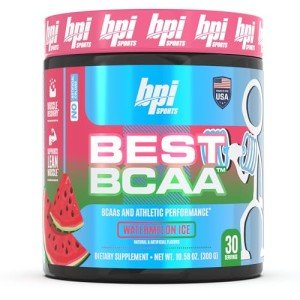What are BCAAs and why are they important for athletes?
BCAAs, or branched-chain amino acids, are a group of three essential amino acids: leucine, isoleucine, and valine. They are called "branched-chain" because their chemical structure includes a branch off the main chain of the amino acid molecule. BCAAs are not produced by the body and must be obtained through diet or supplements.
BCAAs play a crucial role in muscle protein synthesis, which is the process of building new muscle tissue. They are also important for reducing muscle damage during intense workouts and improving exercise performance.
Athletes in particular benefit from BCAAs because they can help to prevent muscle breakdown and increase muscle growth. They can also help to reduce muscle soreness after a workout, allowing athletes to recover faster and get back to training sooner.
In addition to their muscle-building benefits, BCAAs can also help to improve mental focus and reduce fatigue during long workouts or endurance events.
Overall, BCAAs are an important supplement for any athlete looking to improve their performance and maximize their results. However, it's important to note that BCAAs should be used in combination with a well-rounded diet and exercise program, and should not be relied on as a standalone solution.
Benefits of BCAAs: From muscle repair to improved endurance
Branched-chain amino acids (BCAAs) are a group of essential amino acids that are widely used in sports nutrition. They comprise of three amino acids - leucine, isoleucine, and valine - which play a vital role in building muscles and enhancing physical performance. Here are some of the benefits of BCAAs:
Muscle repair and growth
BCAAs stimulate muscle protein synthesis, which is the process of creating new muscle tissue. Leucine, in particular, helps in activating a specific pathway that plays a crucial role in muscle growth. A study found that taking BCAAs before or after resistance training could help increase muscle protein synthesis and promote muscle repair.
Reduced muscle soreness
BCAAs have been found to reduce muscle damage and soreness after intense exercise. They do so by decreasing the levels of the enzymes that cause muscle damage and inflammation. A study on trained athletes showed that taking BCAAs before and after exercise helped reduce muscle soreness and damage.
Improved endurance
BCAAs can also aid in improving endurance performance. Studies have shown that supplementing with BCAAs can delay fatigue and improve endurance by reducing the levels of the neurotransmitter serotonin that signals fatigue during exercise. This effect is thought to be particularly beneficial during prolonged endurance events such as marathons and triathlons.
Preservation of muscle mass during weight loss
BCAAs have also been found to help in preserving muscle mass during weight loss. A study on women found that those who were on a low-calorie diet and taking BCAA supplements lost more body fat and preserved more muscle mass than those who were not taking BCAA supplements.
Improved recovery
BCAAs have been found to improve recovery from exercise by reducing muscle damage and soreness. They are also thought to help improve immune system functioning, which can be beneficial for athletes who are training intensely.
In conclusion, BCAAs offer several benefits to athletes and active individuals, including improved muscle repair and growth, reduced muscle soreness, improved endurance, preservation of muscle mass during weight loss, and improved recovery. However, it is important to note that BCAAs should not be used as a substitute for a healthy diet and exercise regimen. Speak to a medical professional before starting any supplement regimens.
How to incorporate BCAAs into your fitness routine: Dosage, timing, and best sources
If you're looking to boost your workout performance and recovery, branched-chain amino acids (BCAAs) are an excellent supplement to consider. While a balanced diet can provide necessary amino acids, particularly those found in BCAAs, they can be helpful in meeting intense physical demands. Here's how to incorporate BCAAs into your fitness routine.
Dosage
The optimal dosage of BCAAs depends on factors such as body weight, exercise intensity, and training goals. However, a commonly recommended dosage is 5-10 grams of BCAAs per day, particularly before and after exercising. Be sure to follow the dosage recommendation on your supplement's label and ask a healthcare professional to determine your specific needs.
Timing
Timing when to take BCAAs is critical, as taking them at the wrong time may not result in their full potential. The ideal time to consume BCAAs is during and after exercise, as they support muscle protein synthesis, can prevent muscle breakdown, and aid in recovery.
Best sources
BCAAs can be found in a range of foods, including dairy products, eggs, and meat. However, for those seeking a supplement, there are many powder forms available in different flavors, providing an easy and delicious way to incorporate them into your routine. Popular brands include Optimum Nutrition BCAA, Scivation Xtend BCAA, and BSN Amino X BCAA.
Conclusion
Incorporating BCAAs into your fitness routine can have potential benefits, particularly for those involved in intense physical activity. Remember to follow recommended dosages, consume BCAAs during and after exercising, and seek medical advice to determine your specific needs. Whether you opt for food sources or supplements, incorporating BCAAs can aid in reaching your fitness goals.
BCAA Tablets 2000mg with B12 & B6
Boost your workouts and recovery with these powerful BCAA tablets that come packed with essential B12 and B6 for extra energy
Product information
$21.58
Product Review Score
4.19 out of 5 stars
130 reviews








